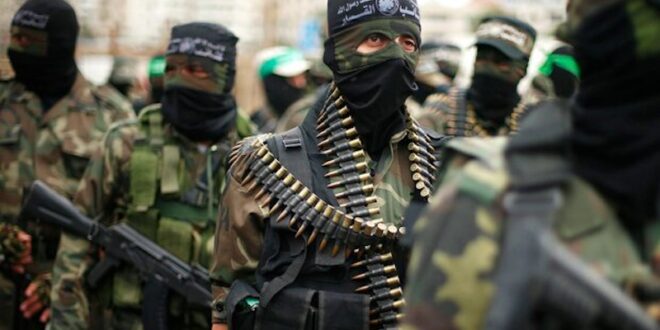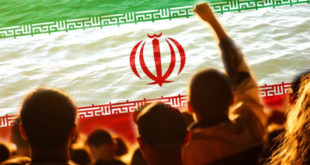In the 1982 graphic novel ‘V for Vendetta’, penned by famous English author Alan Moore, words said by the protagonist particularly stand out: “Beneath this mask, there is an idea, Mr Creedy, and ideas are bulletproof.” This pop culture line feeds well into the very idea of tactically ‘eliminating’ terrorist groups, meaning destroying their leadership, cadres, financial and operational institutions. This is what Israel now aims to do with Hamas.
The end of terrorist groups can have multiple meanings to it, but rarely an absolute one. In most cases, terror groups are nimble and adaptable and build themselves around ideological or geographical fault lines. Hamas, founded in 1987, prioritises the path of militarisation rather than political negotiation. Since the terror attack against Israel, Hamas has been equated by both the Israeli government and the United States as an equivalent to the Islamic State (also known as ISIS or Daesh in Arabic) and Al-Qaeda. “Hamas has committed evils that make ISIS look somewhat rational,” US President Joe Biden said upon his arrival in Israel.
US operation against ISIS, Al-Qaeda
The US, along with its regional and Western allies, has had years-long running campaigns to destroy both ISIS and Al-Qaeda. The American invasion of Afghanistan in the immediate aftermath of 9/11 was put together to eliminate Al-Qaeda and its leadership, led by Osama Bin Laden. Even as the Al-Qaeda leadership was removed — Osama bin Laden was killed in Abbottabad, Pakistan, in 2011, and his immediate successor, Ayman al-Zawahiri in Kabul, Afghanistan, in 2022 — the group continues to exist, albeit in a diminished form.
Al-Qaeda in the Indian Subcontinent (AQIS) released a 19-page statement after the Israeli bombardment of Gaza calling for attacks against Western targets. In 2013, ISIS caught the world’s imagination, annihilating populations in Iraq and Syria, controlling territory that was at a point larger than the United Kingdom, and unleashing a new wave of online propaganda where it marketed its ideology by delivering gruesome videos and photos to every living room in the world.
As a counter, in 2014, the US launched Operation Inherent Resolve (OIR). Large-scale counter-terror actions in dismantling transnational terror groups are difficult undertakings, requiring tremendous military and economic depth to sustain them. However, OIR over the past eight years has been an anomaly of sorts as well, garnering regular success, specifically in its current phase of implementation, that of supporting stabilisation efforts.
In the first three phases, degrade, counterattack, and defeat, the operation was able to uproot ISIS’s territorial controls to a large extent. Much of the OIR campaign relied on a cocktail of air power and ground intelligence. While both unmanned drones and conventional fighter aircraft provided the required firepower, an intricate strategy of providing aid, training and capacity to anti-ISIS groups such as those led by ethnic Kurds, the People’s Defence Units also known as the YPG, the Free Syrian Army (FSA), Yazidi militias and others, helped with critical on-ground human intelligence. This strategy also came with its own baggage, as the Kurdish group such as the Kurdistan Workers’ Party (known as the PKK) is classified as a terror group by the US’s NATO ally Turkey.
In October 2019, the famed caliph of ISIS, Abu Bakr al-Baghdadi, was killed in a US raid on the village of Barisha in north-western Syria. A few days later, then US President Donald Trump publicly proclaimed that ISIS was “100% defeated”. Since then, two successors of al-Baghdadi have been killed. Multiple other middle-level ISIS operatives have also been arrested or killed since. Terror attacks in the name of ISIS have continued from lone-wolf ones in European capitals to the existence of more formalised ISIS affiliates in places such as Afghanistan and the African Sahel.
Following phase I and phase II of OIR, the US. in fact, took on a more dangerous policy of operating on the ground in Syria, opting for raids run by its Special Forces, putting boots on the ground, instead of over-reliance on automated weapons to minimise civilian casualties. Instead of assassinations, some ISIS operatives were also picked up, and their interrogations would have given further intelligence to other members of the group.
The fact that ISIS was increasingly concentrated around a small geography in northern Syria, human intelligence, signal intelligence, and cooperation from local ethnic groups such as the Kurds together formed an environment where the group was devalued to a mere shadow of its former self. But this does not mean that ISIS is or was over. The group continues to claim attacks on a weekly basis, around the world.
Hamas, a different challenge
For Israel, the challenge is different. The fundamental anchoring of Hamas is the Palestine issue, and within that, Gaza. Hamas’s war is not against a particular piece of land or the protection of a particular group of people, it is about driving out all Jewish people from these territories. This ideology has been incubated in Gaza over decades with no political solutions on the horizon, making generation after generation susceptible to falling prey to the likes of Hamas.
An Israeli ground attack to clear out Gaza of Hamas will in all likeliness have only short-term tactical gains which would erode quickly without any long-term strategic and political blueprint. While many analysts believe that a two-state solution is not achievable anymore, no other ideas have been presented to move this status quo forward towards at least a resumption of a dialogue. Israel’s wish to end Hamas will ultimately need more than just access to the best technologies and weapons.
A cliche but common adage in the stream of counterterror studies is that “one man’s terrorist is another’s freedom fighter”. Perhaps the Israel-Hamas war is one of the saying’s most apt examples.
 Eurasia Press & News
Eurasia Press & News



